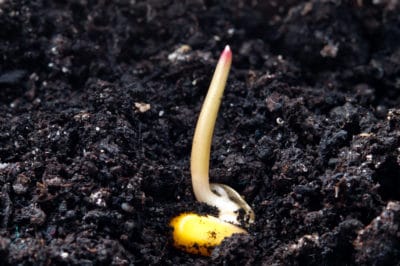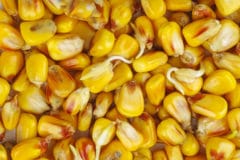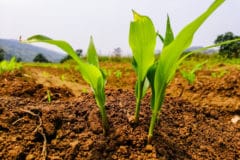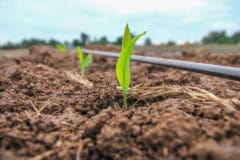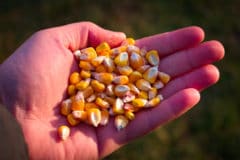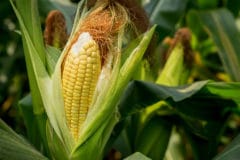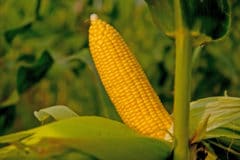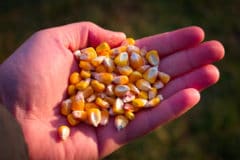Is There a Standard Germination Time for Corn?
The easy answer to the question about a generally accepted germination time for your corn seeds is that yes, there is a standard. Under ideal conditions, most varieties of corn seeds will germinate within 7-10 days. If you have planted just a few blocks of corn that you plan on eating fresh from the stalk, this is enough information to work with. You should be able to roughly estimate the time to harvest based on when the seeds germinated.
Tip: The seed packet itself is the best place to find germination time for a specific variety.
Variances in Seed Germination
Despite the accepted rule of 7-10 days to germination time, there are many other factors that come into play when it comes to planting corn. One of the most important factors is the soil temperature. Ideally, the soil in which you plant your corn seeds should consistently be between 60°-90°F (16°-32°C).
In a nutshell, the warmer your soil, the sooner the corn seeds will germinate. Although some gardeners insist that 50°F (10°C) is plenty warm for the corn to germinate, they will likely have to wait as long as 22 days before they see the seeds break through the soil.
Tip: Waiting until the soil warms might be difficult, but you will not be losing any time by waiting. Planting one row of corn when temperatures are still low and planting another row when the soil warms up and you will likely see them appear at the same time!
Other Factors that Affect Germination
Soil temperature is not the only thing that can affect how early or late your corn seeds emerge. If you planted the seeds when the soil temperature was correct but still have not seen any corn seedlings appear, consider the following:
- How much water did you give the seeds? They need water in order to swell and break open.
- Is your ground hard? A hard crust on top of the soil can prevent seeds from emerging.
- Do you have pests? Some will devour seeds as quickly as you plant!
Tip: For most of the above conditions, working a thick layer of organic compost into the ground before planting. Compost keeps the earth warm as well as retains moisture.
Bad Seeds
If you have addressed issues like soil warmth and quality and have ascertained you do not have pests, you simply may have planted too early. However, if more than three weeks have passed and there is no sign that your seeds are germinating, it is possible you have a batch of seeds that are not going to sprout no matter what you do. In cases like this, you likely got a packet of expired or improperly dried corn seeds.
Tip: Some sweet corn varieties only take two months to mature, so if you have to replant your corn, be sure to buy an early-ripening variety.
